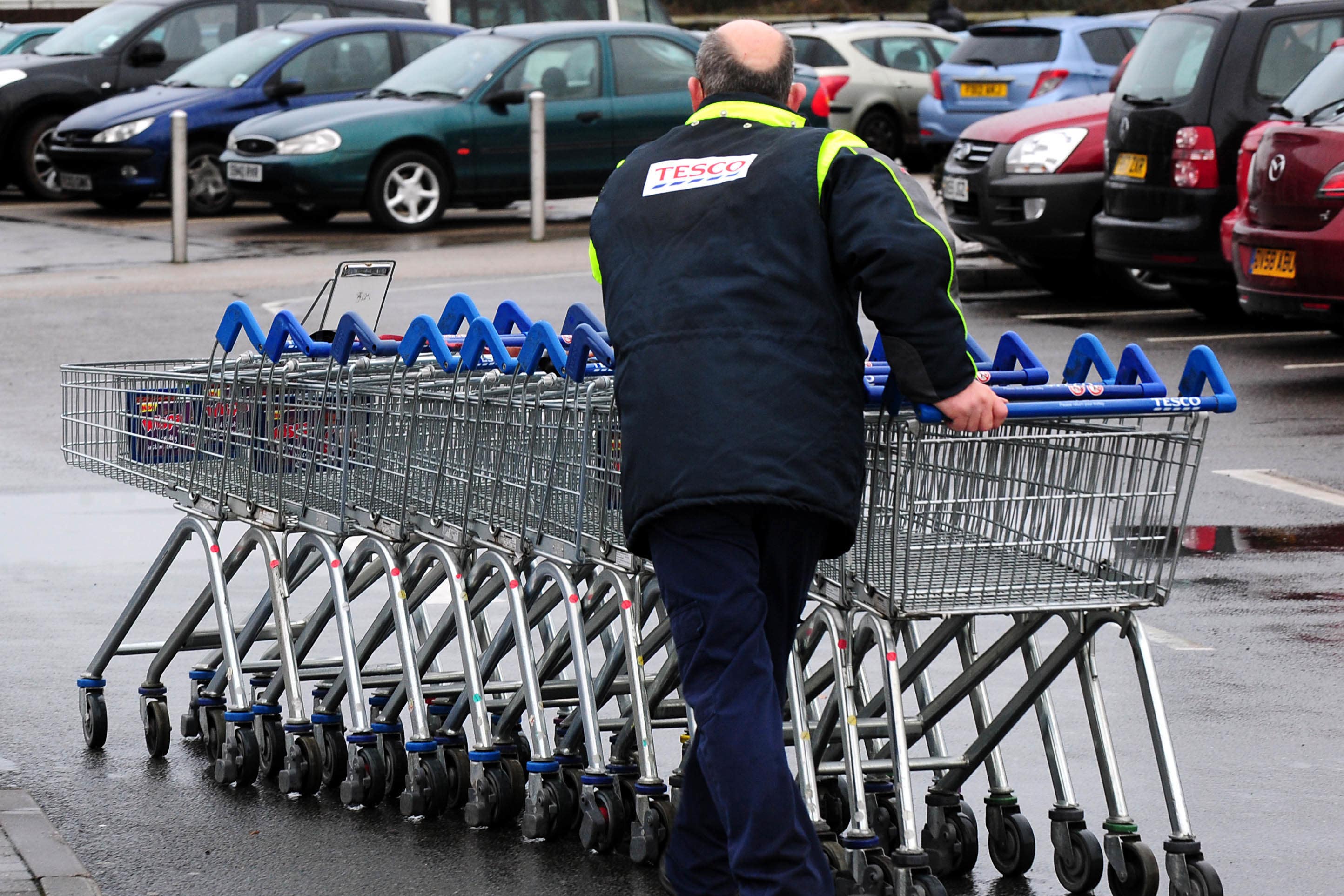Tesco’s woes illustrate our country’s economic malaise
The economic raincloud hanging over much of Britain forced the grocer to cut its forecasts, writes James Moore


Tesco is turning into a visual representation of Britain’s economic problems. Its results show what happens when global crises and the government’s staggering economic incompetence interact.
This is the retailer of what you might call “the middle 95 per cent”. Unless you’re a banker or CEO or entirely reliant on food banks, you’re likely to find yourself shopping there at some point.
It might be the middle 90 per cent or even 85 per cent by the time Liz Truss is done and the number of people in grinding poverty has reached its peak.
The economic raincloud hanging over much of Britain forced the grocer to cut its forecasts as it reported results for the first half of its financial year.
As with most big companies, Tesco likes to stock its shelves with many different measures of profit, some of which leave a taste only an accountant could love.
That includes the measure used for its forecasts: “retail-adjusted operating profits” (ugh). It strips out the contribution from Tesco Bank, among other things, and in the first half the number came in at £1.25bn. It was down 10 per cent on the comparative number for 2021 but the pandemic was still flattering grocers’ numbers at that time, so not too shabby.
The group had forecast that the number for the full year would come in somewhere between £2.4bn and £2.6bn for the full year. However, it has now warned that it will come in towards the bottom end of the range.
That might not sound like such a big deal. But it is more important than it might at first appear.
Companies run by smart people will set these numbers with a view to coming in at the top end of the range. It’s called expectation management and there’s nothing wrong with that.
The fact that Tesco now expects its earnings will only barely clear the fence shows that the retail sector’s thoroughbred has started to encounter heavy going.
Another worrying sign is that if Tesco is right, it is going to make less profit in the second half than in the first.
Supermarket earnings are distributed more evenly than with, say, a John Lewis or an M&S or a Currys. But Christmas would still normally give the grocer a sizeable seasonable bump. That it doesn’t think this will happen this time around has implications beyond Tesco’s outlets. It is a demonstration of how customers are losing their discretionary spending power.
That money is having to be deployed to pay the gas bill, the electricity bill, the mortgage or the rent, all of which are rising sharply and outpacing wages.
To ease the burden consumers are trading down. They are, says CEO Ken Murphy, “watching every penny to make ends meet”, which means focussing on own-label products rather than brand names, keeping a close eye out for special offers and jumping on them when they see them, putting a hard cap on the weekly shopping bill. Christmas will be a far more frugal affair than it usually is for those in this position.
Hard luck for Tesco. Much worse for those parts of the high street which rely heavily on the festive season to make their livings. The grocer is not expecting a catastrophic Christmas. But catastrophe may be coming for what remains of the High Street.
The group should ultimately emerge stronger from this. The shares came under some pressure on the back of the announcement, but it could have been worse. Investors with an eye on the long term will have taken note of the way Tesco has been growing market share and the firepower it has to withstand the challenge posed by Aldi and Lidl. The pair of German discounters are by a distance Britain’s fastest growing supermarkets and no wonder.
There are grim portents in these results for those in a less happy position.






Join our commenting forum
Join thought-provoking conversations, follow other Independent readers and see their replies
Comments